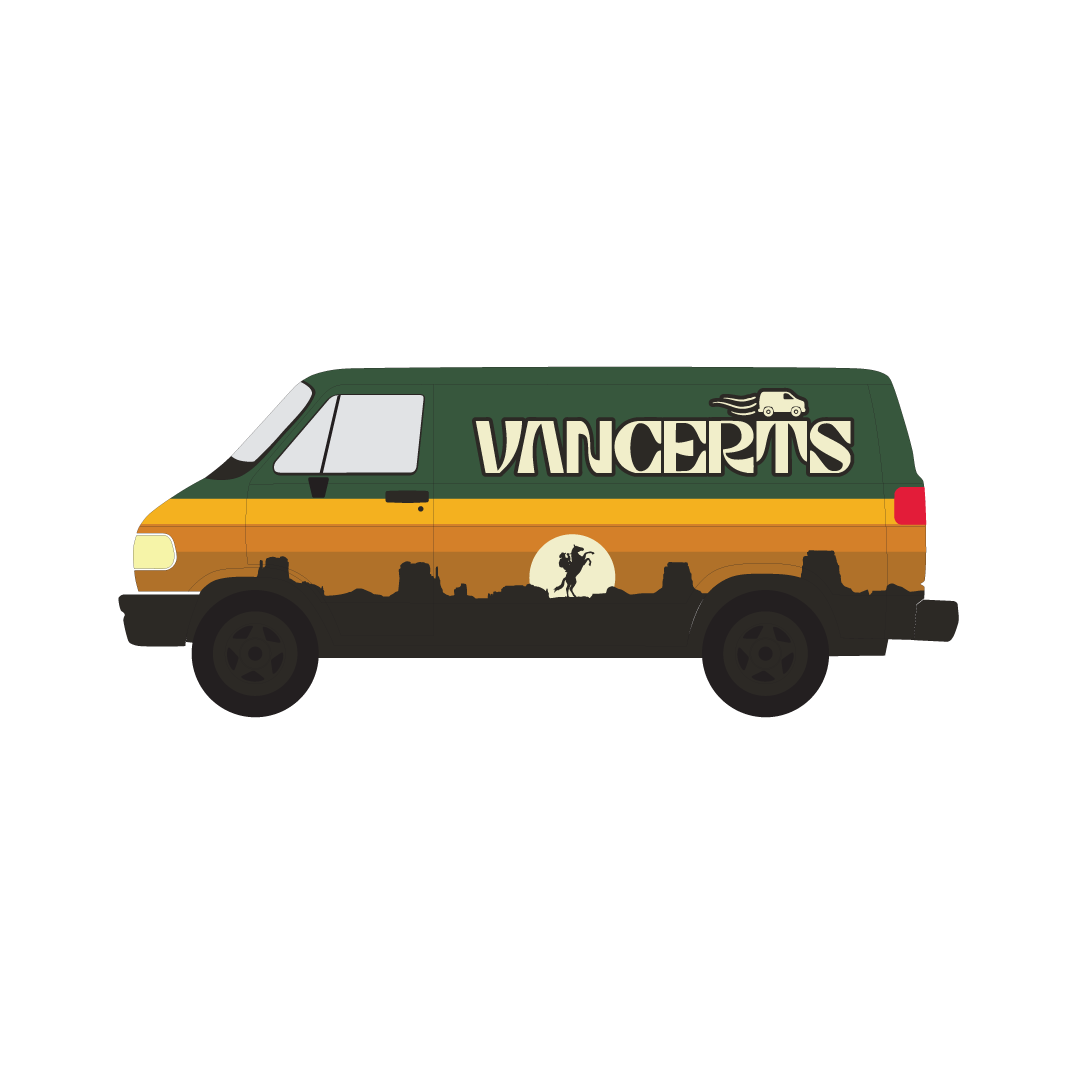HAPPY BIRTHDAY TO KIMIE FLORES (KIMIE THE DESTROYER) OUR FEATURED NIGHT OWL FOR JUNE!
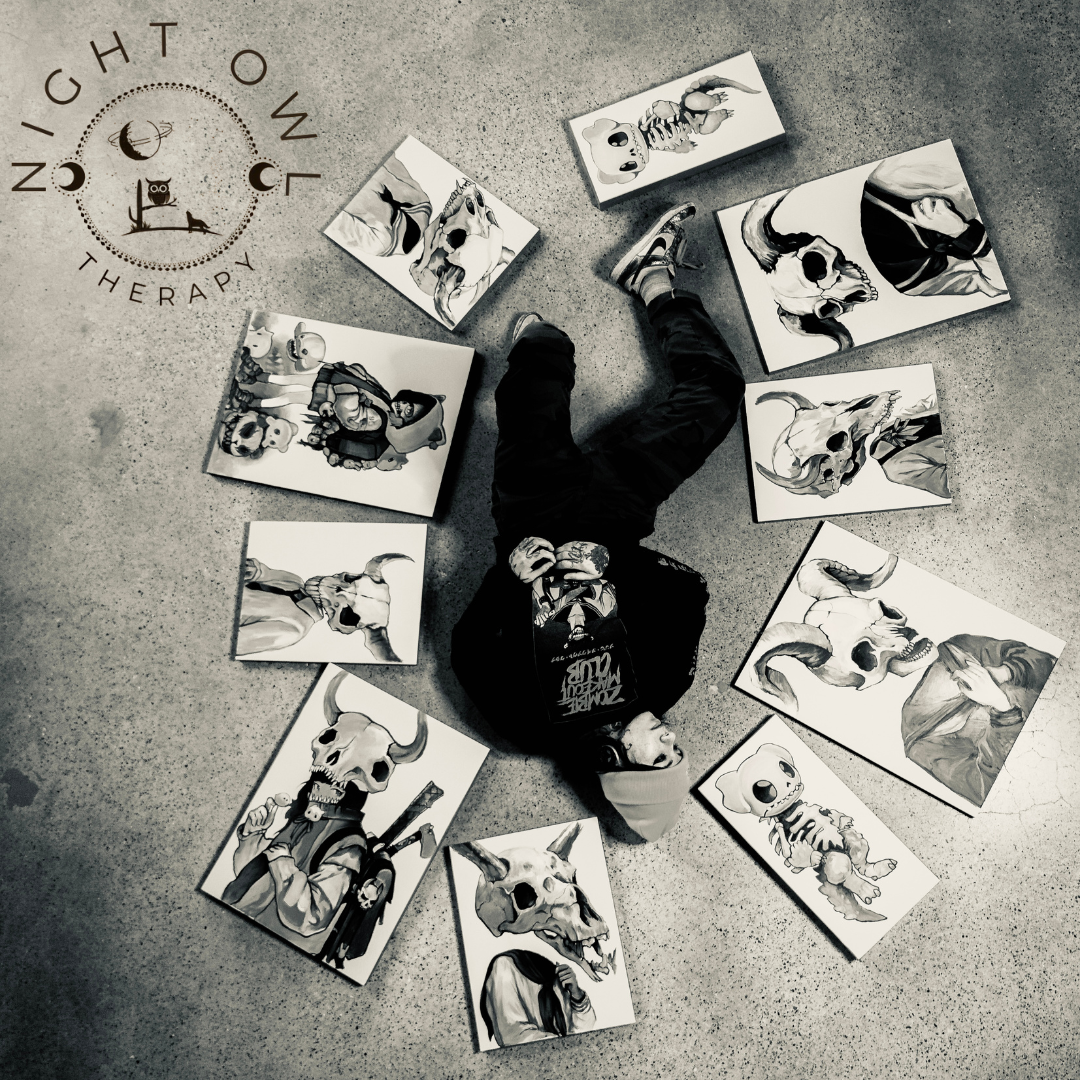
Meet Kimie Flores (Kimie the Destroyer).
Kimie shares her experiences with us, discussing how she leverages her natural instincts in business, navigates sobriety, faces discrimination based on her appearance, handles police reports, and copes with the challenges of simply existing. We reached out to Kimie after learning about her previous involvement in community projects and appreciate her openness in discussing therapy and her personal journey as an artist.
(Photo credit: Jake Howse)
Tell us a little bit about your background as an artist. Who are you as an artist and how did you come to be where you are today?
For sure. I grew up in a small town in south Texas called Uvalde. There’s not much out there, so for me, art played a huge role in my life which is something to do. Something to look forward to. I had a really awesome high school art teacher. I drew my whole life, but she was the one who pushed me into wanting into do it as a career, help me with resources, apply to college, and look into school. She went to school, and she was an incredible artist. Seeing her made it more real… Not saying my family wasn’t supportive, it’s just in their mind…they’re old-fashioned, Mexican household. They make money to survive to take care of all of us. So, they weren’t like “Oh yeah. Go out be an artist.” They wanted me to find something stable. Something that will help me get an education. So, for me, I just dove into the whole art thing. I was told Austin is the place where all the weird people are, and I just wanted to know what that was all about.
Boundaries show up in all areas of life. How do they show up in your area of life working as an artist?
Definitely with a level of comfort. You want to be able to produce your best. If you’re not feeling… if something seems a bit off to you in a situation, I really do believe that is your body’s natural instinct letting your body know that something is a little funky. I need to say something. I need to make sure that we’re good or reassess the situation. It’s totally helped me in the long run. Boundaries are really important. You’re trying to protect your mind and of course your physical. It’s always important to establish what the boundaries are with anything in life with your friends or clients.
How have you needed to establish boundaries with your clients?
Just by talking out the situation. Understanding that if it is with a client or a friend, seeing what their expectations are and then try to do our best to collaborate and then meet in the middle.
What other obstacles have you experienced?
Haha, well obstacles are just apart of the job. Simply putting yourself out there. You show people your work. It automatically gives people this sense of being able to have this perception of you or how you do things. Just dealing with rejection. I’ve applied to many shows and been rejected in a span of 10-11 years. I think, to a degree it is helpful because it helps you reassess, and see things from a different perspective. Things I’ve been rejected from, I’ve been accepted, too. It’s just apart of growing. Are you evolved? You want to perform better and learn how to transform what you’re doing. Eventually all the “no’s” turn into “yes”, and that is probably the most gratifying part of the hard work. It does pay off.
What about social stigma? Do you feel you are treated differently for working as an artist?
Oh, for sure. Especially since I am more alternative looking. I am heavily tattooed. I recently did this mural job in Cedar Park. I was working by commission for a little league team. They wanted to have a baseball mural in their space. I had worked with them to design to some stuff. There were Karen’s that were driving by and calling the police saying that there is someone tagging the art—tagging the mural! They don’t realize that’s me, like, I am the one making the mural. That was definitely a bit strange for me to deal with because as I would go out there and work on it, I would talk to police officers on a daily basis that would say “You’re not…doing anything…right?” I’d say “I mean, I am painting this for the little league team.” They’d say they kept getting calls that someone is trying to tag the mural and “you don’t really look like you’re tagging anything.” I was like “I’m not. I have a permit to be here.”
So, how do you show up for yourself after situations like that?
I definitely take breaks. After the pandemic, I learned that it’s really important to take care of your mind, and just being able to properly rest. If I’m not working on art stuff, I’m really into fitness. I try to do things for my mind and my body by just working out. Working out makes me feel really good. It makes me feel healthy. I quit drinking four years ago after the pandemic. That was just a really difficult time to process. I found myself becoming a daily drinker. It was just super unhealthy. I didn’t want to use that as a way to cope with the circumstance of what the world was. Now, if I’m feeling down about something, I’ll go exercise or spend time with some of my close friends because they are my chosen family. We try to support each other, push each other, and remind each other that we are on the right path and doing well. It’s just sometimes people don’t understand.
In every industry, there is unspoken etiquette, a way of how you would like to be treated. What would you like our readers to know as far as how to treat artists?
I would say the most important thing is that not everyone can afford to buy art. We live in a very unpredictable economy at the moment. Just being able to share people’s work and talk about it… spread the word. If you see a cool art piece, show all of your friends the art piece, then they can show all of their friends. It doesn’t always have to be a money, transactional relationship. As long as you are supportive, like their posts, engage with their social media… that means the world to people. That is apart of the business now. If you don’t have that presence online, people wonder if you’re in a cave. If you’re not trying to spend that money, then definitely be more engaging online. Share people’s work. I share a ton of my friend’s work because there’s so many incredible artists here in town.
What is a valuable lesson you have learned working in the night life industry?
That’s a good question. I would say, it’s a test of being able to adapt to certain situations because things are so unpredictable. It’s one of those things that if you really want to do something like this, and be an artist, try to actually be a professional, it’s going to be very hard. Incredibly hard. You don’t necessarily have a nine-to-five boundary of “This is when I work”. You have to set that for yourself. Sometimes for me, I work almost everyday. I’m just grateful that I love doing what I do because it doesn’t necessarily feel like work. I would rather be going non-stop doing what I love than having that nine-to-five where I check out. I think that’s the trade off of it. It’s time. People that might have a conventional job might not have time to dive into their passions and understand what that’s really all about. I’m glad to a degree that I have a certain level of discipline that I can set up my schedule in a way to where I can properly get everything done, but still also show up for myself.
What would you say to someone to who is reluctant to receive therapy?
I used to be one of those people. Honestly, when I met my friend Courtney, she really changed my whole perception on therapy. At the time, she was going through a divorce. Seeing her go through that during the pandemic…it was a two year long divorce because of everything happening. She kind of saw that I was going through personal stuff, too. She reminded me it is okay to talk to somebody. There’s nothing wrong with talking to someone and just getting another opinion. It honestly helped me because I found a therapist and started talking to someone for almost two years after the pandemic. It honestly helped me during that time understand what I was feeling. That internal anxiety about everything happening and that uncertainty. It helped me a lot with not second-guessing feelings I might have had, and insecurities. It was nice to talk to somebody that, in a weird way, doesn’t really know me.
Is there anything else you’d like to say before we wrap up about therapy or your experience as an artist?
Definitely. I just want to say therapy works for everyone. People have their own ways of being able to find help. There are some incredible people that can guide you through certain hard times. It’s important to understand to know when you’re feeling overwhelmed. Life is hard. Existing is incredibly difficult. Nobody said it was easy, and nobody knows how to do it. So, it’s perfectly okay to take a step back, talk to somebody, and let them know “Hey. I’m not okay… But I want to be.” I think that’s probably the biggest game changer is having that mentality is understanding that you want to see inner improvement within yourself, you know? Nobody knows what they’re doing. We all just manage life the best way we can. It’s a bit overwhelming. I never claim to know everything because I definitely know it all, but I want to do my best to try to understand certain situations. I want to manage it the best way I can.
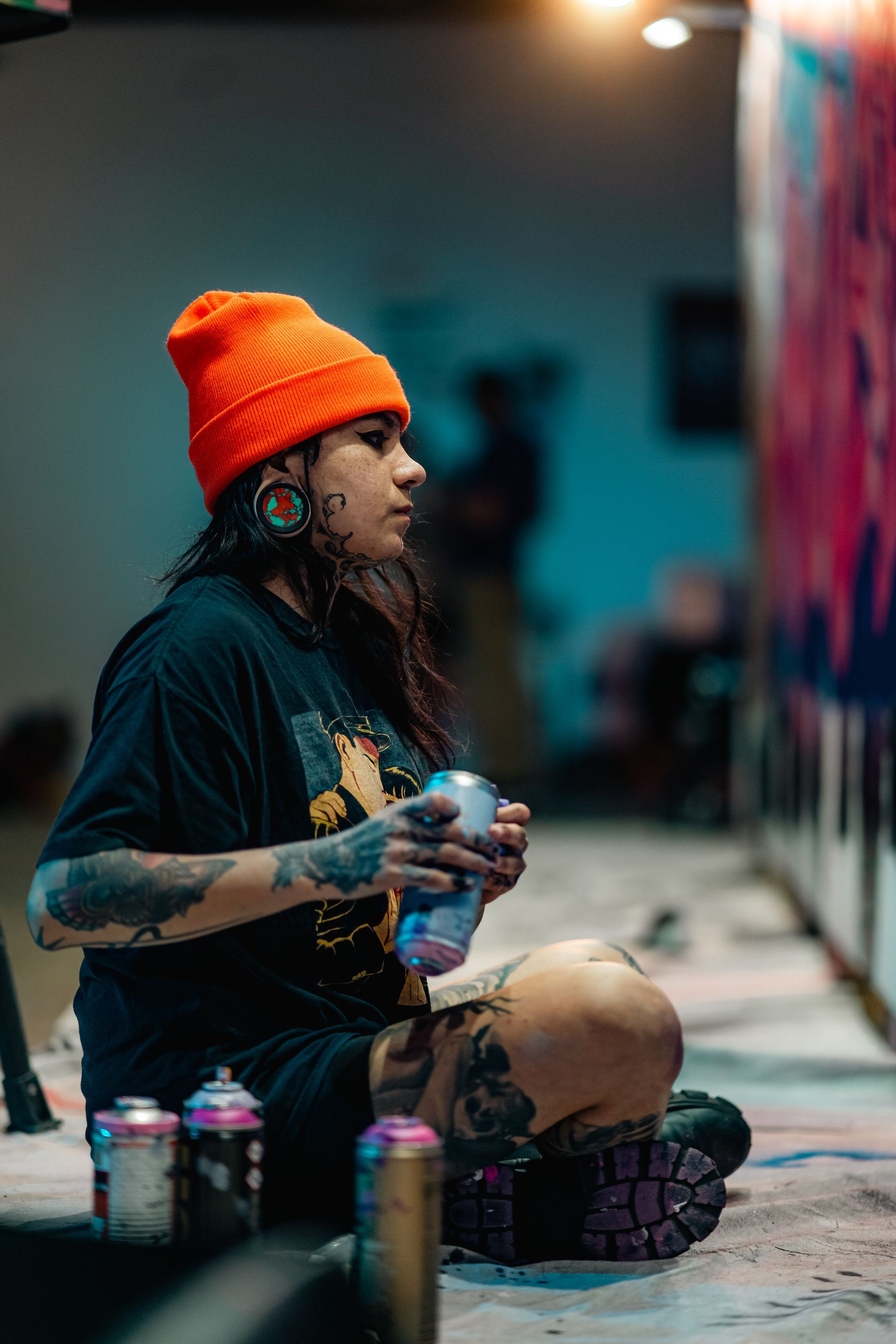
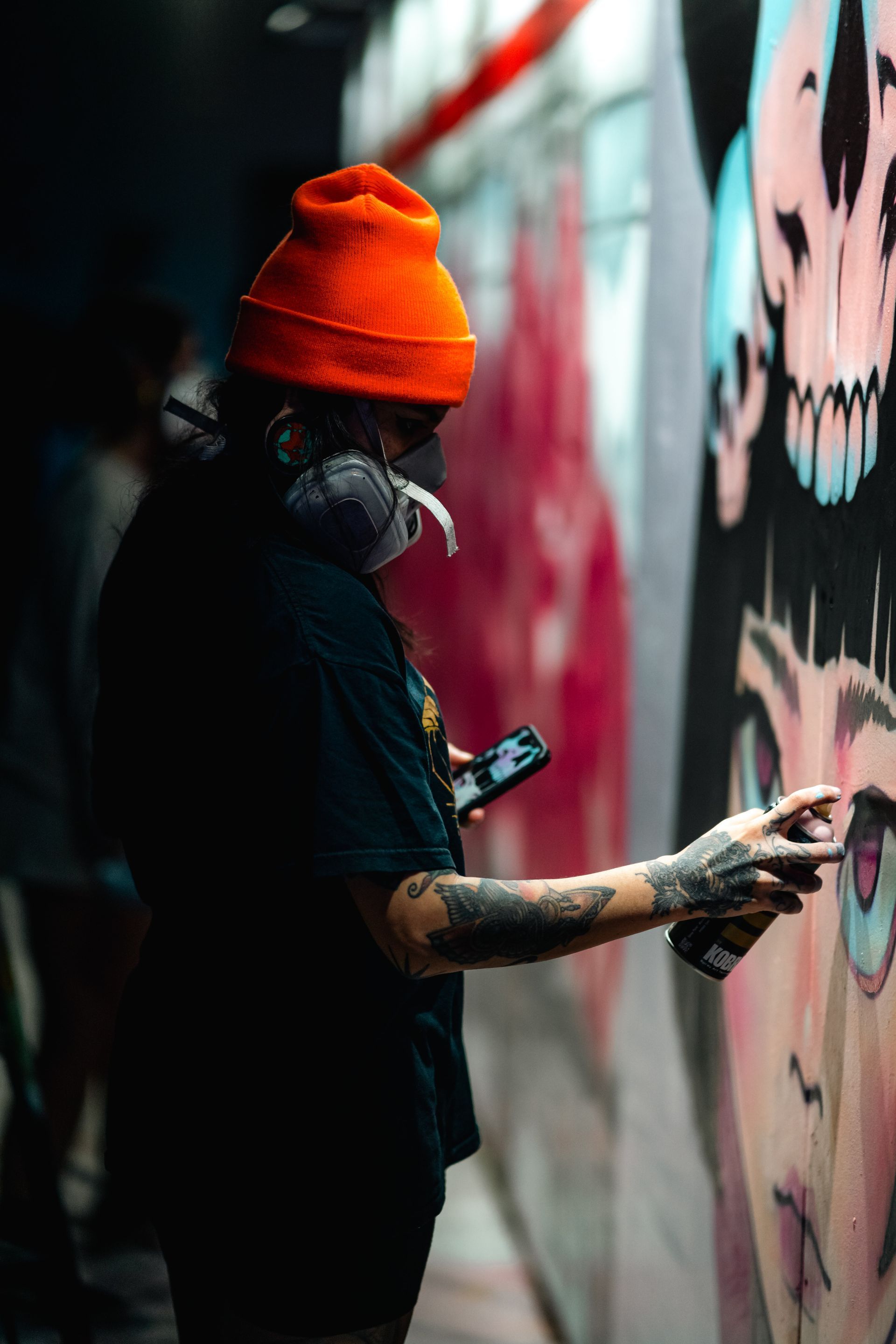
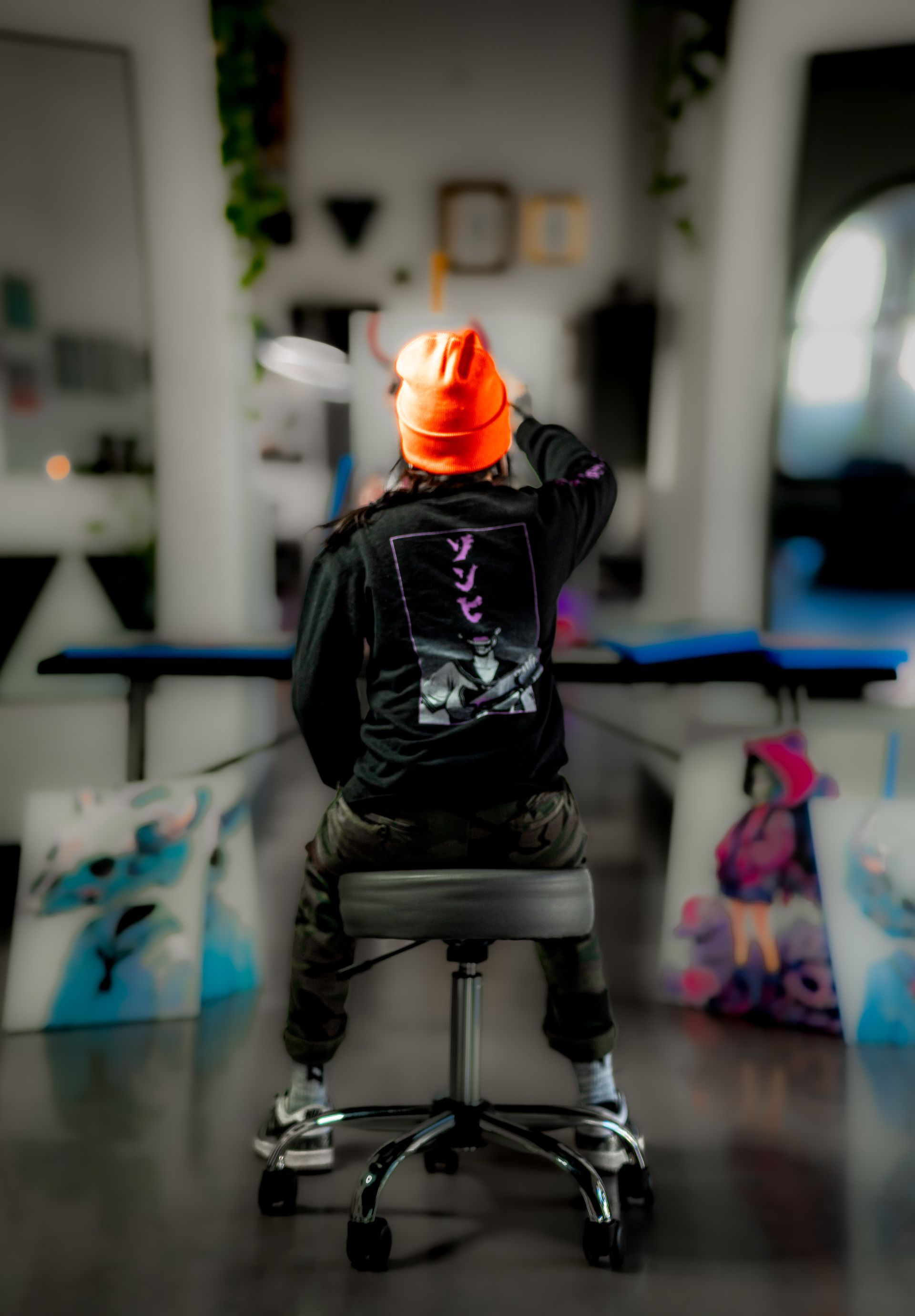
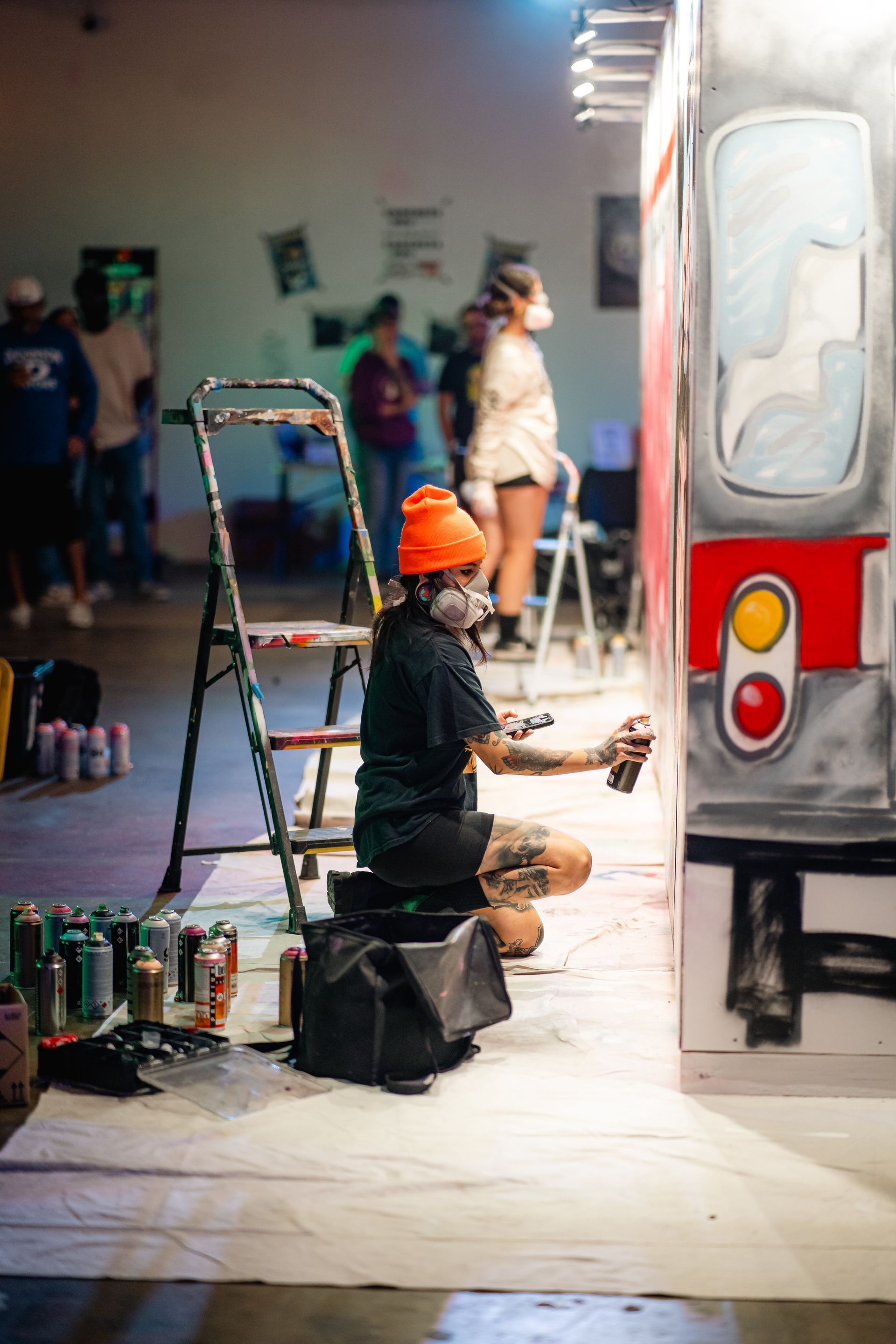
Community Partners
We couldn't serve our community without the help and support of our partners. Discover their offerings for additional resources.
All Rights Reserved | Night Owl Therapy 2024
